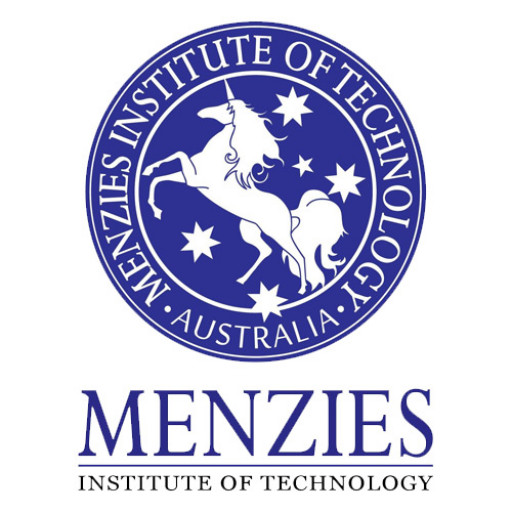Photos of university / #rmituniversity
This qualification reflects the function of a dental technician responsible for construction and repair of dentures and other dental appliances including crowns, bridges, partial dentures, pre- and post-oral and maxillofacial surgical apparatus, and surgical appliances.Dental technicians work in dental labs by themselves or in classes, under the prescription of dentistsdental prosthetists or dental specialists. Regardless of accreditation, legislative, regulatory or certification requirements affect this qualification at the time of publication.
The Bachelor of Dental Technology at RMIT University offers a comprehensive and practical education designed to prepare students for a successful career in dental technology. This program focuses on equipping students with the critical skills and in-depth knowledge necessary to design, fabricate, and repair dental prostheses, appliances, and restorative devices that improve patients' oral health and quality of life. Throughout the course, students will explore fundamental aspects of dental anatomy, materials science, and laboratory techniques, ensuring they develop a strong technical foundation.
The curriculum integrates theoretical coursework with extensive hands-on training in modern dental laboratories, allowing students to gain real-world experience under the supervision of experienced professionals. Key subjects include dental materials, CAD/CAM technology, dental laboratory procedures, and clinical communication skills. Students will also learn about infection control, quality assurance, and ethical practices relevant to the dental industry.
In addition to technical expertise, the program emphasizes professional development, fostering skills in teamwork, problem-solving, and communication. Students will have opportunities to engage in industry placements, enabling them to apply theoretical knowledge in practical settings and establish valuable industry connections.
Graduates of this program will be well-prepared to work in dental laboratories, collaborating with dentists and other dental professionals to produce high-quality dental restorations, including crowns, bridges, dentures, and implants. They will be equipped with the knowledge to adapt to emerging technologies within the field and to continue their professional development through lifelong learning. Overall, the Bachelor of Dental Technology aims to produce competent, ethical, and innovative dental technologists who can contribute significantly to oral health care services.
Program requirements for the Bachelor of Dental Technology at RMIT University typically include completing prerequisite subjects in science and health, such as biology, chemistry, and physics, to ensure students have a foundational understanding necessary for the technical aspects of dental prosthetics. Applicants are often expected to hold a high school certificate with a strong academic record, particularly in relevant subjects. Selection may also consider prior experience or interest in health sciences and technical disciplines. The program mandates the completion of coursework that covers fundamental dental technology principles, including prosthesis fabrication, dental materials, and equipment operation, along with practical laboratory sessions to develop hands-on skills. Students are usually required to undertake clinical placements or industry placements, providing exposure to real-world dental laboratories and collaborative opportunities with professionals in the field. English language proficiency is necessary for non-native speakers, with tests such as IELTS requiring a minimum score consistent with RMIT’s standards. In addition, students might need to demonstrate certain personal qualities, such as manual dexterity, attention to detail, and good communication skills, as these are vital in dental technology practice. The program also emphasizes the importance of ethical practices and ongoing professional development. Throughout the program, students are expected to adhere to university and industry standards, including safety and infection control policies, especially during practical sessions. To successfully graduate, students must complete all required coursework, pass assessments, and fulfill the necessary clinical practice hours. The progression is designed to ensure graduates are competent to work in dental laboratories or clinics, capable of fabricating complex dental appliances, and prepared for registration or licensing processes as required by relevant authorities.
The Bachelor of Dental Technology program at the Royal Melbourne Institute of Technology (RMIT) offers a range of financial options to support students in their academic pursuits. International students are required to pay tuition fees which vary depending on the year of study and specific course components, with the approximate annual fee being AUD 37,600. Domestic students, including Australian citizens and permanent residents, can access government-subsidized places through the Australian Government’s Commonwealth Supported Place (CSP) scheme, significantly reducing their tuition fees. The subsidized fee for domestic students is approximately AUD 10,500 per year, with the remainder covered by the government, although students may be responsible for Student Services and Amenities Fees (SSAF) and other additional costs.
Students are encouraged to explore various financial assistance options such as FEE-HELP, a?loan scheme providing eligible students with a low-interest loan to cover tuition fees, which can be paid back gradually through the Australian tax system. This scheme helps reduce upfront costs and makes higher education more accessible. Additionally, scholarships are available for both domestic and international students based on academic merit, equity, or specific achievement criteria. These scholarships can offset tuition fees or provide stipends to assist with living expenses.
Students may also consider external funding sources, including private scholarships, bursaries, or financial aid from external organizations. RMIT’s Financial Assistance Office provides comprehensive advice on available funding options, application procedures, and eligibility criteria to help students manage their financial commitments. Furthermore, students should budget for additional expenses such as textbooks, dental supplies, clinical uniforms, living costs, and transportation, which vary depending on individual circumstances.
Part-time work opportunities are accessible within Melbourne’s vibrant university environment and local community, enabling students to supplement their income during studies. RMIT’s close ties with industry partners can also provide pathways for internships or part-time roles relevant to dental technology, enhancing both experience and financial stability.
In summary, the financing options for the Dental Technology program at RMIT include government-supported subsidies for domestic students, student loan schemes such as FEE-HELP, scholarships, external funding, and opportunities for part-time employment. Prospective students are advised to consult RMIT’s official financial aid resources and plan their budget carefully to ensure a smooth educational journey.
The Bachelor of Dental Technology at RMIT University is a comprehensive program designed to prepare students for a career in dental technology, focusing on the design, fabrication, and repair of dental prosthetics and appliances. The curriculum combines theoretical knowledge with practical skills, ensuring graduates are well-equipped to work in clinical laboratories, dental practices, and manufacturing settings. Students gain a deep understanding of oral anatomy, dental materials, and laboratory procedures, alongside training in computer-aided design (CAD) and computer-aided manufacturing (CAM) technologies that are increasingly important in modern dentistry. The program emphasizes hands-on experience through simulated laboratory work and industry placements, allowing students to apply their skills in real-world environments under professional supervision. RMIT’s facilities include state-of-the-art dental laboratories equipped with the latest technology, supporting the development of technical expertise and industry readiness. Throughout the course, students learn about health and safety regulations, quality assurance, and ethical considerations relevant to dental technology. Graduates are skilled in creating crowns, bridges, dentures, orthodontic appliances, and other dental prostheses, contributing to patient care and improving oral function and aesthetics. The program is recognized by relevant industry bodies and prepares students for registration and employment opportunities within dental laboratories or related healthcare contexts. With a focus on innovation and technological advancements, the Bachelor of Dental Technology at RMIT aims to cultivate highly competent professionals who can meet the evolving needs of the dental industry. The program typically takes three years to complete, including coursework, practical training, and industry placements, and is designed to support students from diverse educational backgrounds interested in pursuing a specialized career in dental technology.







